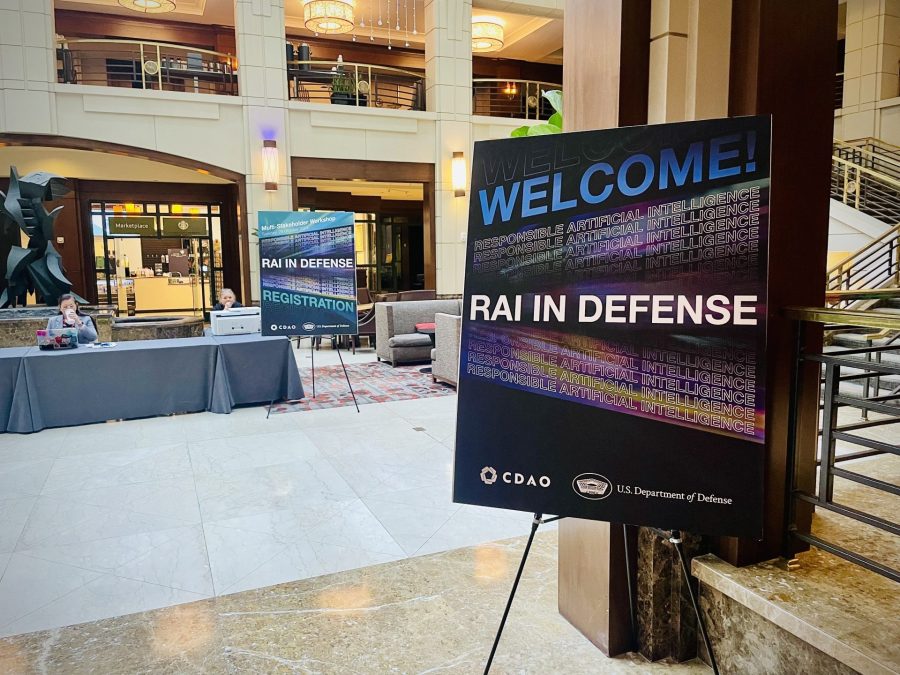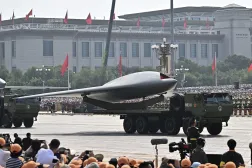Nearly 60 militaries now endorse U.S.-launched pledge on ‘responsible AI’

Close to 60 nations now back the Political Declaration on Responsible Military Use of Artificial Intelligence and Autonomy, more than a year after U.S. leadership unveiled that international norms and arms control proposal and it was accepted for adoption with partners, according to Deputy Defense Secretary Kathleen Hicks.
The Pentagon’s No. 2 official shared that update among a list of achievements the Chief Digital and AI Office has helped accomplish over the last several years since its inception, during pre-recorded remarks that were aired to kick off the CDAO’s Responsible AI in Defense Forum in Reston, Virginia, on Tuesday.
“Since 2021, we’ve accelerated our drive toward a more modernized, data-driven, and AI-empowered U.S. military,” Hicks said.
Broadly, the CDAO is hosting this invite-only workshop as a venue to enable dozens of Pentagon-supporting stakeholders to exchange ideas and plans for operationalizing RAI in defense. A range of practitioners, experts and scholars from government, industry, academia and other international participants — notably, from nations in the NATO alliance and Indo-Pacific region — are in attendance.
Some of the forum’s sessions focus on risks and opportunities presented by emerging and powerful generative AI and associated frontier models, the Defense Department’s approach to responsibly deploying autonomy and an RAI Toolkit demo.
During her opening keynote, Hicks emphasized that the DOD does not use data and AI to censor, repress or disempower people.
Spotlighting some of its “wins” so far, she noted that the CDAO has “updated DOD responsible-use policies and directives, to keep pace with new tech and lead on trust and safety,” and also “issued new strategies, guidelines, guardrails, and practical toolkits and apps that turn our values into action.”
“We’re glad those resources are now used by many outside DOD — like other U.S. agencies, international allies and partners, and leading tech companies. We’re also glad that almost 60 nations now endorse, as we do, the Political Declaration on Responsible Military Use of AI and Autonomy,” Hicks said.
That framework, which ultimately seeks to build and foster an international consensus around responsible behavior and guide nations’ development and deployments of AI and autonomous capabilities for warfare, was launched in February 2023 at the Responsible AI in the Military Domain Summit in the Hague, Netherlands.
According to data from the WayBackMachine website, some of the latest nations to endorse the pledge since it was first adopted include Ukraine, Panama, Ethiopia, Israel and New Zealand.
On the sidelines of the RAI Forum on Tuesday, the Australian Defence Department’s chief data integration officer, Paul Robards, told DefenseScoop that “signing up to that international, responsible AI and military blueprint is part of Australia’s commitment to building trust with our partners and allies.”
In his view, the partnership between the U.S. and Australian governments and militaries to collaboratively and responsibly enable joint and interoperable artificial intelligence capabilities continues to deepen — as further demonstrated by his attendance and speaking engagement on stage at the forum.
“This is across multiple fronts — and the AUKUS alliance is absolutely a part of that. But beyond that, we’re working together in so many ways and there’s a lot of opportunities ahead of us here with responsible AI,” Robards said.






